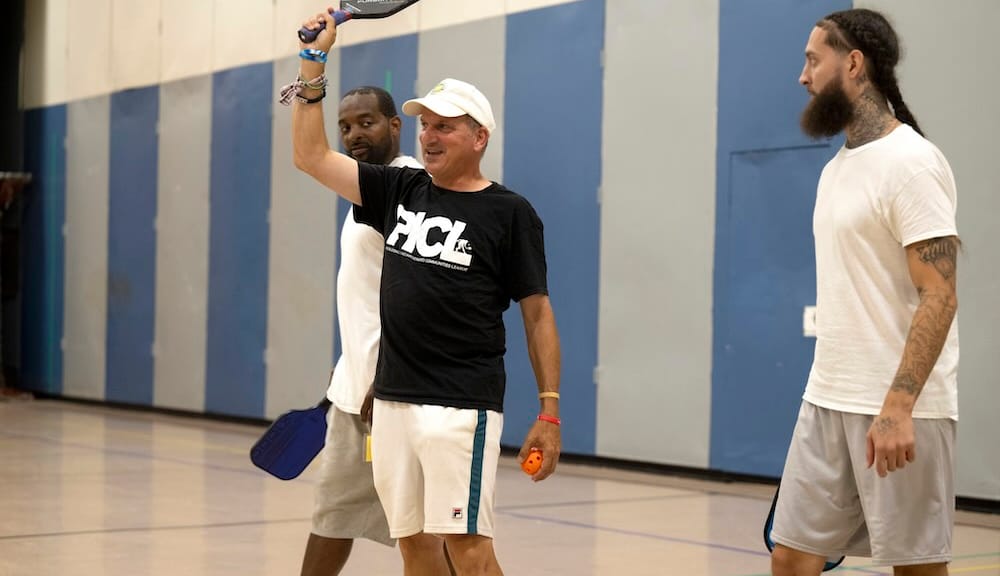
The Pickleball Prison Experiment | Inmate DUPR Ratings Smooth Re-Integration Upon Release
Pickleball continues its growth in the prison system and a creative solution offers inmates a chance to establish DUPR ratings anonymously, smoothing transition into society upon release
Pickleball, with its low barrier to entry, social nature, and blend of athleticism and strategy, has exploded in popularity across the globe. But while most players are enjoying the sport in community centers and sprawling pickleball complexes, a dedicated group of individuals is bringing the game to a place where hope and positive outlets are often in short supply: correctional facilities.
In a pioneering move, the Dynamic Universal Pickleball Rating (DUPR), the official rating system of the sport, recently hosted its first-ever rating event within a prison. Held at the MacDougall-Walker Correctional Institution, a maximum-security facility in Suffield, Connecticut, the event saw 17 inmates participate in a spirited tournament, marking a potential turning point in how we view rehabilitation and the power of sport to transform lives.
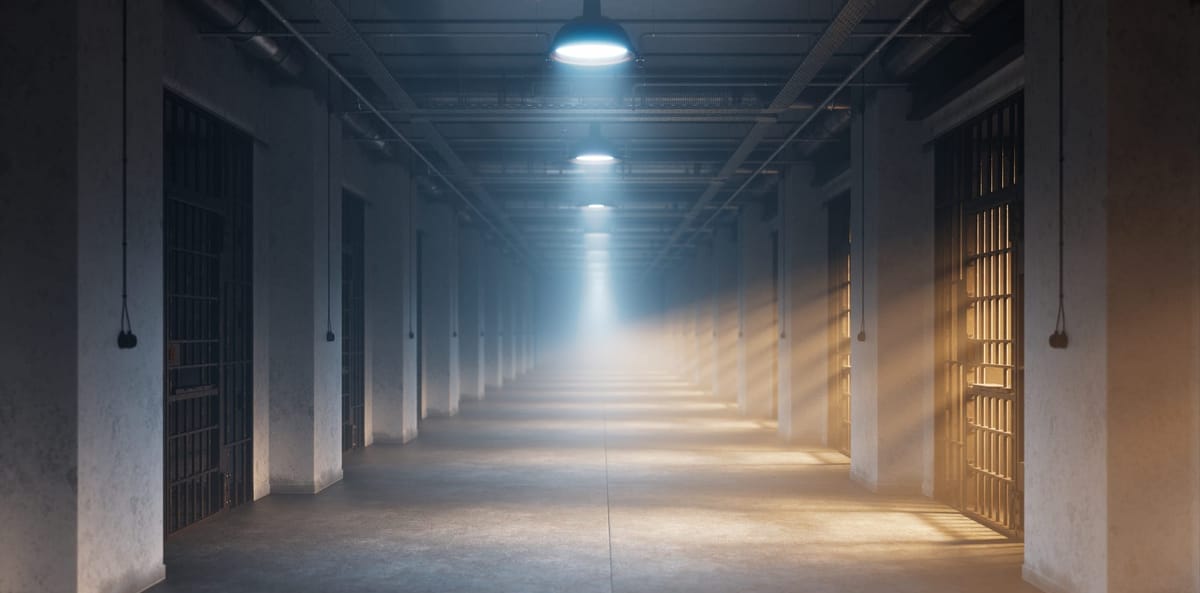
This groundbreaking event was the brainchild of Angelo Rossetti, a passionate pickleball advocate and founder of Rossetti Brothers Pickleball and Pickleball for Incarcerated Communities League (PICL). Rossetti, who has been instrumental in bringing pickleball programs to prisons, shared his experience in an email to Founder of The Dink, Thomas Shields. He described the palpable excitement and nerves of the inmates as they competed for their first official ratings, underscoring the significance of this opportunity:
"It was really inspiring to see that the inmates got nervous because they cared, just like anyone else. They took it seriously and genuinely cared, and any frustration they showed came from a good place—the desire to do well."
The event itself was a testament to the organizational efforts of Rossetti and the participating inmates. Using taped lines on two basketball courts to create four makeshift pickleball courts, they managed to complete an impressive 36 matches within a two-and-a-half-hour window.

"One of the walls featured a mural dedicated to my EAGLES concept: controlling your controllables—Effort, Attitude, Gratitude, Learning, Enjoyment, Sportsmanship, and Focus on playing freely without the weight of winning," explained Rossetti.
Allowing Inmates to Establish DUPR Ratings
But this initiative is about much more than just providing a recreational activity. It's about harnessing the unique power of pickleball to foster personal growth, build community, and pave the way for successful reintegration into society. By participating in DUPR events, inmates can establish official pickleball ratings, which can serve as a bridge to the wider pickleball community upon their release.
This connection offers a sense of belonging, a built-in support system, and a positive outlet, all of which can significantly reduce the risk of recidivism."For those who eventually get released, having an official rating will allow them to blend seamlessly into the pickleball community—and be better for it," Rossetti emphasized.
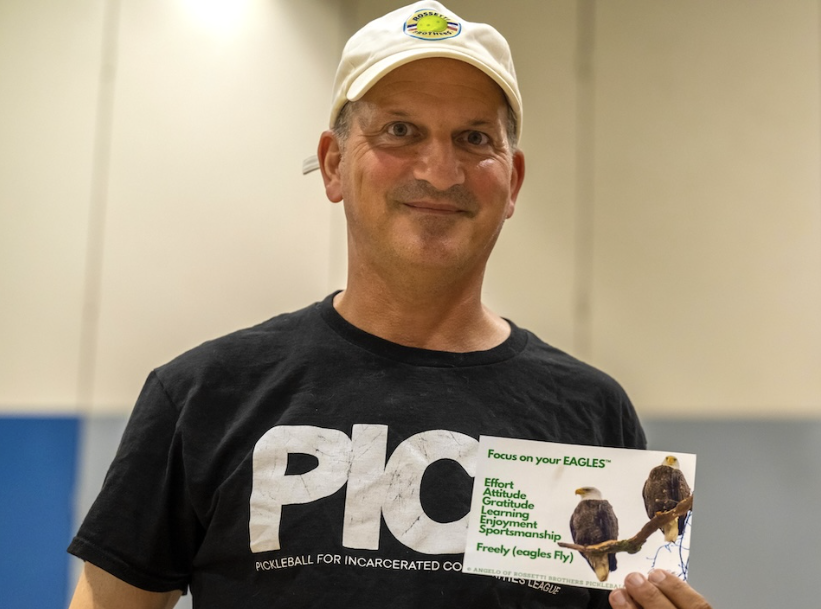
To protect the privacy of the inmates, a unique system was implemented where each participant used a nickname combined with the first initial of their last name. Scores were meticulously recorded by hand, as electronic devices are prohibited within the facility. These scores will then be entered into the DUPR digital club system, ensuring the inmates' privacy remains intact while still allowing them to establish their pickleball identities.
Pickleball in Prisons
This innovative approach to rehabilitation through pickleball is gaining momentum. Other organizations and individuals have also recognized the potential of this sport to positively impact the lives of inmates. Programs like PICL, spearheaded by Rossetti, have been actively working to bring pickleball to correctional facilities across the country.
"One of the volunteer coaches even remarked that the sportsmanship and behavior were better than any open play he'd been a part of," Rossetti shared, highlighting the positive impact of these programs. "That's a true testament to the work I and our PICL group has put in over the past year to emphasize the importance of control—especially when it comes to sportsmanship. Being a good person far outweighs being a good player."
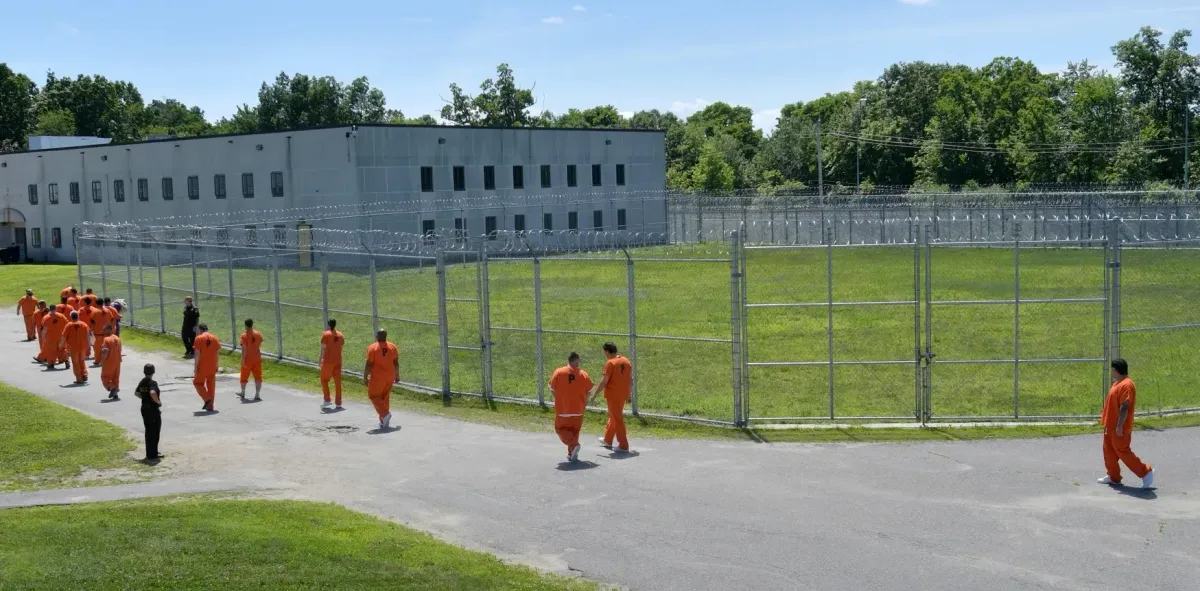
The success of this first-ever DUPR event in a prison setting is a powerful testament to the transformative potential of sport. It underscores the ability of pickleball to transcend boundaries, build bridges, and offer hope in unexpected places. As pickleball continues its meteoric rise, it's inspiring to see it used as a tool for rehabilitation and reintegration, offering those who have stumbled a second chance at a fulfilling life, one dink at a time.
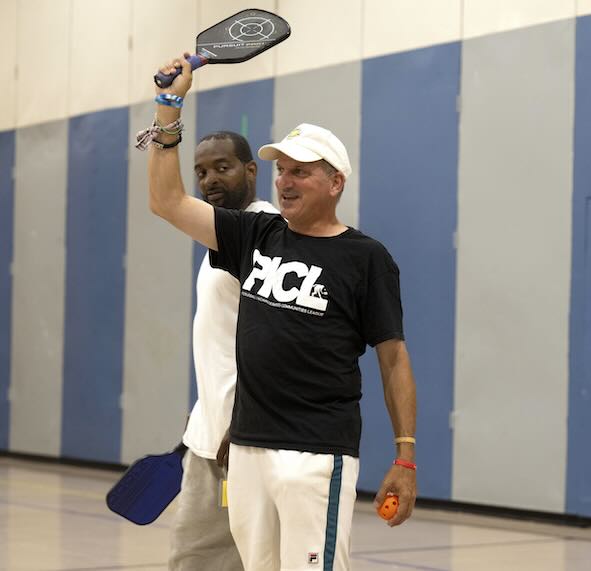
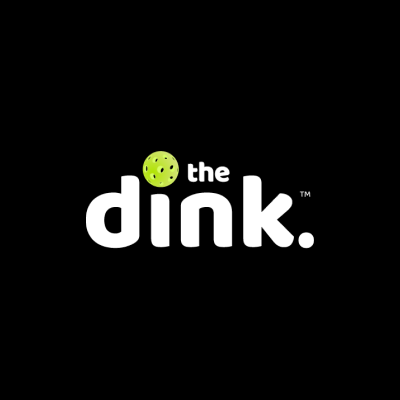
Love Pickleball? Join 100k+ readers for free weekly tips, news & gear deals.
Subscribe to The DinkGet 15% off pickleball gear at Midwest Raquet Sports




